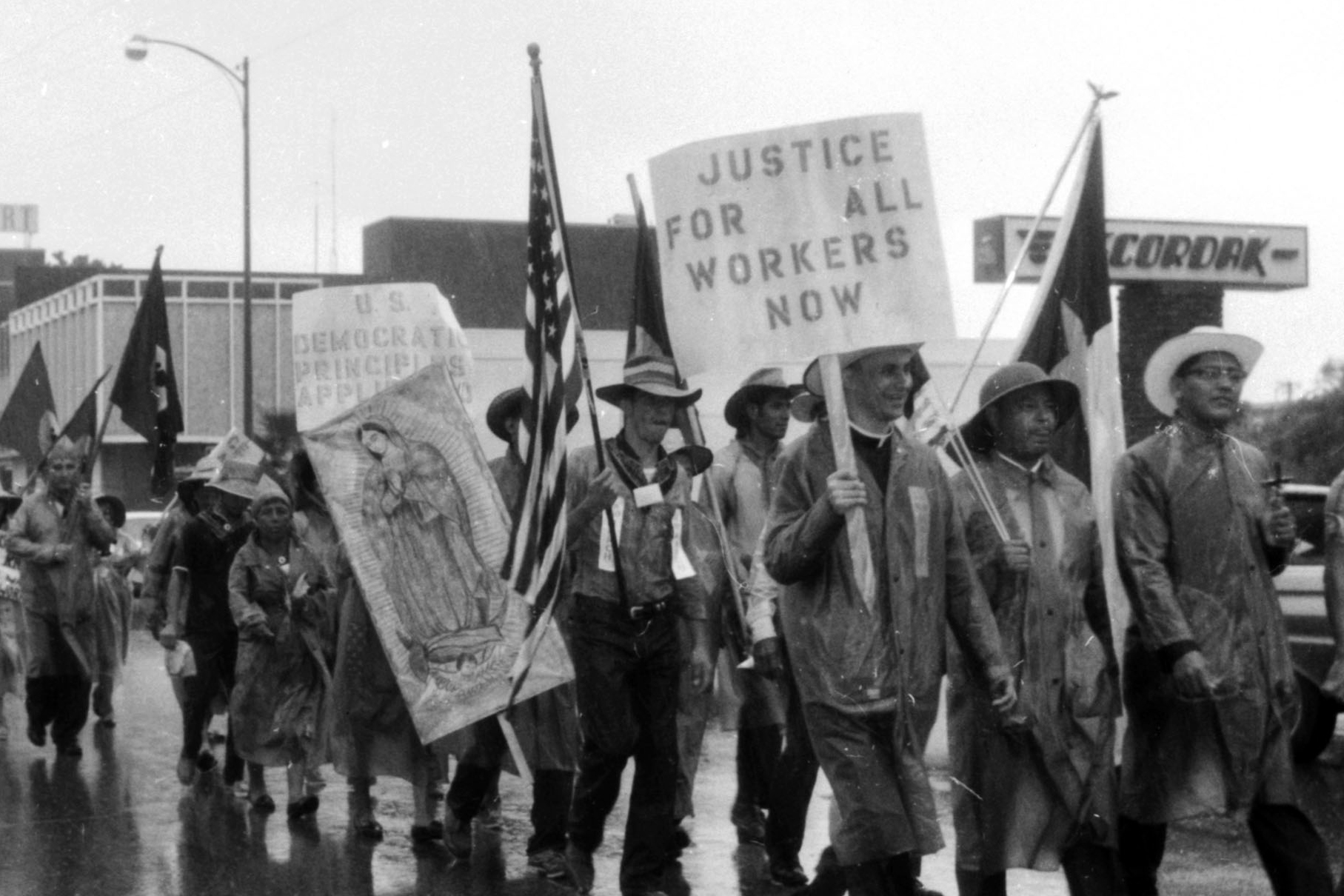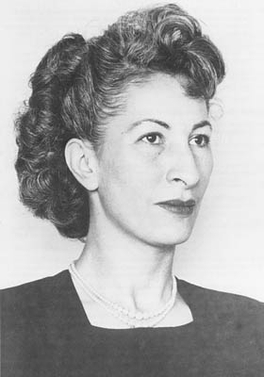From Guatemala to California: The Life of Luisa Moreno
Posted by Pete on Aug 30th 2024

The Latina activist who became a hero of the American labor movement
Cesar Chavez tends to dominate the popular memory of Latina/Latino activism in the U.S. during the twentieth century.
But he wasn’t alone.
Chavez stood on the shoulders of giants who’d gone before. And few were as important as Luisa Moreno, born on this day in 1907.
Chavez was one of the most prominent Latino activists in the 20th century, but Luisa Moreno was also a leading light of labor activism
See the Cesar Chavez tea towel
Moreno, like many others in the history of the American labor movement, wasn’t born in the U.S.
She was born in Guatemala, and into the Guatemalan elite.
But Moreno never felt at home in the ruling class. At the age of just 19, she gave up on her family’s wealth and moved to
revolutionary Mexico.
From México, Moreno soon continued her transnational journey to New York City, where she began her career as a labor radical.
Moreno arrived in New York just in time for the Wall Street Crash.
The
Great Depression threw Moreno’s young family, along with millions of other working-class Americans, into economic hardship.
But it also opened the curtain on a decade of labor radicalism the likes of which the U.S. had never seen, and Luisa Moreno was soon on the frontlines of it all.
Steinbeck's novel The Grapes of Wrath drew attention to the impact of the Great Depression on working people
See the John Steinbeck tea towel
In 1930, like many other Americans during this period, especially among racialized parts of the working class, Moreno joined the U.S. Communist Party to fight for workers’ emancipation, remaining an active member until 1935.
Moreno also became a highly-skilled union organizer.
In ‘Spanish Harlem’ – so-called for its large Latina/Latino population – where Moreno was working at a garment factory to support her daughter and unemployed husband, she organized her fellow workers into a labor union.
Soon enough, Moreno was scouted by the American Federation of Labor (AFL), which recruited her as a full-time organizer.
Moreno was a rare talent in her ability to organize sections of the American working class marginalized by their race and gender. In Florida, for instance, she organized Latina and African-American women in the cigar industry.
Moreno began moving westward during the later 1930s, organizing food-processing workers in Texas, before she arrived in California, where she made a base in San Diego.

In 1939, Luisa Moreno convened the first ever Latina/Latino civil rights assembly
California was the major hub of Latina/Latino activism in the mid-century U.S., and Luisa Moreno’s work became increasingly bound up with the wider struggle against white supremacy.
Moreno helped to organize the ‘Congress of Spanish-speaking Peoples’ in 1939 in California, the first ever Latina/Latino civil rights organization in the U.S.
In 1942, Moreno campaigned in defense of a group of Latino men falsely accused of a murder by the LAPD – the Sleepy Lagoon Trial.
Moreno also always insisted on agitating for the entire American working class, including its immigrant workers who’d not yet been allowed citizenship by the state.
"These people are not aliens. They have contributed their endurance, sacrifices, youth and labor to the Southwest. Indirectly, they have paid more taxes than all the stockholders of California’s industrialised agriculture, the sugar companies and the large cotton interests, that operate or have operated with the labor of Mexican workers."
After the Second World War, as McCarthyism launched a war against working-class labor activism in the U.S., Luisa Moreno was made to suffer for her own non-citizen status, and for her track record of solidarity and political courage.
In 1950, after she refused to collaborate in the persecution of another labor organizer, Moreno was deported to México.
After some years working as a teacher in
revolutionary Cuba, Moreno eventually resettled in her birth country of Guatemala, where she died in 1992, a hero-in-exile of the U.S. working class.


